A list of our past fellows, each of which has made valuable contributions to better understanding the testimonies held at the Fortunoff Archive.
Past Fellows
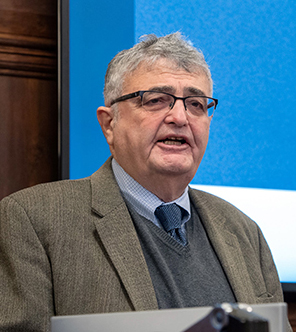
Samuel KassowWilliam Rosenberg Senior Scholar
Samuel Kassow is the Charles H. Northam Professor of History at Trinity College. He holds a Ph.D. from Princeton University, and has been a visiting professor at many institutions, including Harvard University, University of Toronto, Hebrew University, Dartmouth College, and others.
He served as lead historian for two of the galleries at Warsaw’s POLIN Museum of the History of Polish Jews from 2006 to 2013. Professor Kassow is the author and editor of a number of books, including Who Will Write Our History: Emanuel Ringelblum and the Secret Ghetto Archive (Indiana University Press, 2007), which was a finalist for a National Jewish Book Award and recipient of the Orbis Prize. It has been translated into numerous languages and a feature film based on the book was released in 2018. Most recently he has co-edited, along with David Roskies, the ninth volume of the Posen Anthology of Jewish Culture, published by Yale University Press in 2019. His annotated translation of the Warsaw Ghetto memoirs of Rachel Auerbach are also forthcoming.
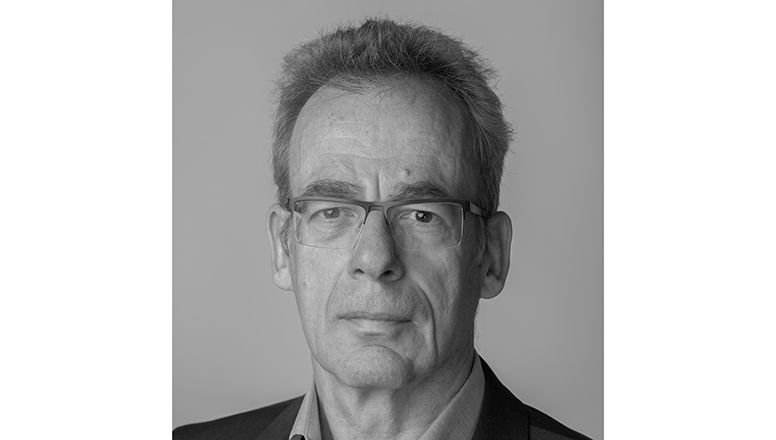
Christoph Dieckmann William Rosenberg Senior Scholar
Christoph Dieckmann taught Modern European History at Keele University, United Kingdom, researched Yiddish historiography of the Russian Civil War at the Fritz Bauer Institut in Frankfurt am Main and has worked as a postdoctoral researcher at the University of Bern on the project "Sounds of anti-Jewish Persecution.“
At present he is teaching - mostly via Zoom - at Haifa University in the Weiss-Livnat International Program of Holocaust Studies.
His study Deutsche Besatzungspolitik in Litauen 1941-1944 [German Occupation Policy in Lithuania 1941-1944] was published in 2011 and was awarded the Yad Vashem International Book Prize for Holocaust Research in 2012. He co-edited the Deskcalendar Heinrich Himmlers 1941/42 (Hamburg 1999), and has published on ghettos (2009) and the impact of German warfare on mass crimes (2015).
His latest publications are as follows: Lithuanian author Ruta Vanagaite held a series of talks with Dieckmann on the common history of Germany and Lithuania in Europe during the Shoah. The talks were published at the end of 2021 as How Did It Happen? Understanding the Holocaust. In spring 2022, Dieckmann and Arkadi Zeltser edited Distrust, Animosity, Solidarity, a book on the relation of Jews and Non-Jews during the Shoah in the Soviet Union.

Anca FilipoviciFortunoff/VWI Fellow
Anca Filipovici is a Fortunoff research fellow at the Vienna Wiesenthal Institute (October 2020 – June 2023) and researcher at the Romanian Institute of Research on National Minorities (Cluj-Napoca, Romania – since 2017). In July 2018, she was a short-term EHRI fellow at the Center for Holocaust Studies at the Institute for Contemporary History in Munich, while in 2018-2019 she received a fellowship of the New Europe College in Bucharest.
Since 2013, she holds a PhD in history at the Babeş-Bolyai University of Cluj, with a published thesis called Cărturarii provinciei. Intelectuali și cultură locală în nordul Moldovei interbelice [The Scribes of the Province. Intellectuals and Local Culture in Northern Moldavia] (Iaşi, European Institute, 2015). In 2018, she edited, together with Attila Gidó, the volume Trecutul Prezent. Evreii din România: istorie, memorie, reprezentare [The Present Past. The Jews in Romania: History, Memory, Representation] (Cluj-Napoca, RIRNM Publishing House, 2018). She is also the author of several articles and studies exploring ethnicity and antisemitism in interwar Romania. Her latest paper entitled “‘Faith and work for King and Country!’ Nationalization and covert Romanianization through the youth organization Straja Țării (1934–1940)” was published in National ldentities (2021, vol. 23, no. 4).
Anca's current project explores the history of the Holocaust in Romania from the perspective of Jewish youth as an agency of resistance. It focuses on Jewish underground youth organizations and other political movements that were active during the Second World War. A focus is placed on young Romanian Jews outside the ghettos, but also on those who were deported to Transnistria; on those who considered the possibility of a new life in Romania or fought for emigration to Eretz Israel. Based on archival files and survivors' testimonies from the Fortunoff Video Archive, the project will create a typology of these organizations. It will examine the mobilizing factors and analyze the relationship between youth and political engagement. It raises the question of the nature of ethnic and religious identity when this identity transforms the individual into a victim.
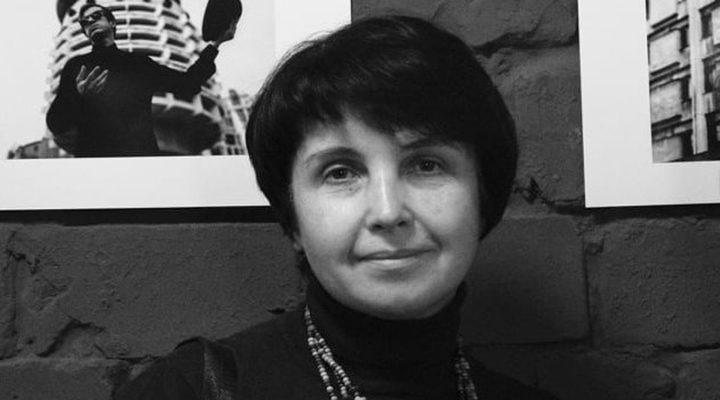
Marina PolyakovaNon-Residential Fellow 2022
Marina Polyakova has been working at Memorial International since 2014, where she transcribed, edited and commented on archival oral testimonies of Soviet citizens deported for forced labor during World War II (Ostarbeiters), repressed during Stalinism, prisoners of the Gulag and others. Currently, she is also working on her PhD examining the everyday life of Ukrainian artists in the 1960s-1980s. Marina is supported by a fellowship from the Institute for Human Sciences (IWM) in Vienna.
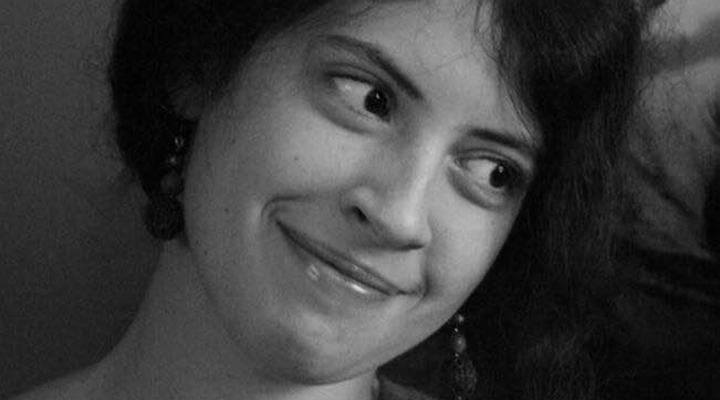
Anna Kharitonova Non-Residential Fellow 2022
Anna Kharitonova has been working for International Memorial as an archivist since May 2021, where she was responsible for the systematization of the Oral History collection of the GULAG archive. Kharitonova graduated from the Russian State University for the Humanities (Moscow) in 2019.
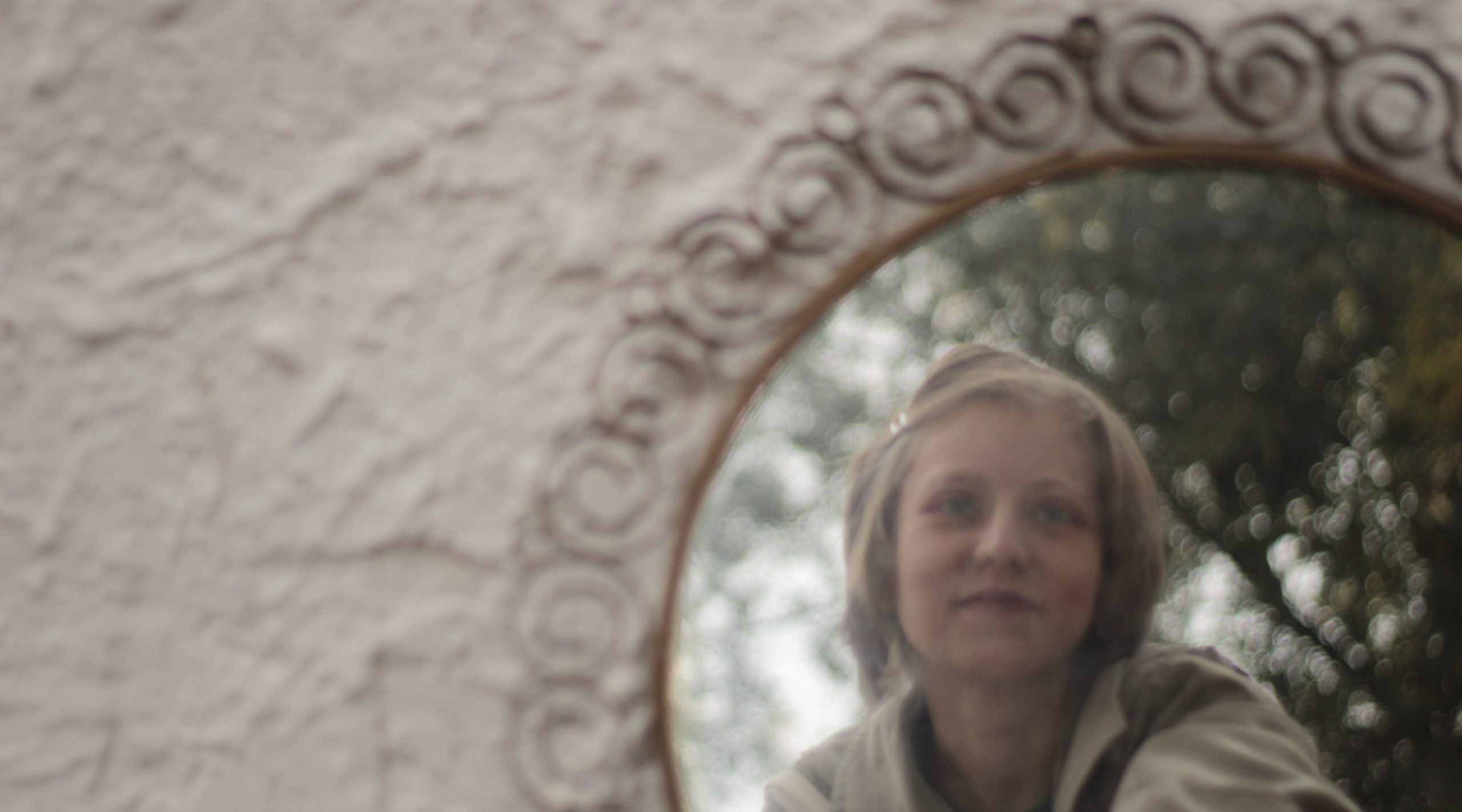
Varya AndreevaNon-Residential Fellow 2022
Varya Andreeva has worked at International Memorial since 2018, where she edited, annotated and contributed to publications based on oral histories of Soviet citizens deported as forced laborers during World War II (Ostarbeiter). Her research examines relations between Soviet teenagers, the Leningrad Young People’s Theater and the Soviet government. Andreeva received her BA in Theater Studies in 2021.
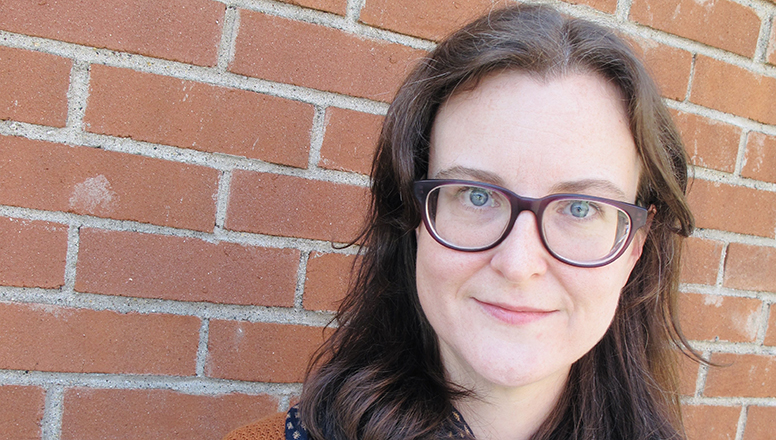
Kathryn L. BrackneyPostdoctoral Associate
Kathryn L. Brackney is a modern European intellectual and cultural historian. She received her Ph.D. from Yale University in 2019. Between 2019-2022 she was a lecturer in the History & Literature program at Harvard University. Her research explores how aesthetic norms have developed for remembering the Holocaust and other genocides. Dr. Brackney’s current book project, Surreal Geographies: A New History of Holocaust Consciousness, is under contract in the Mosse Series at the University of Wisconsin Press.
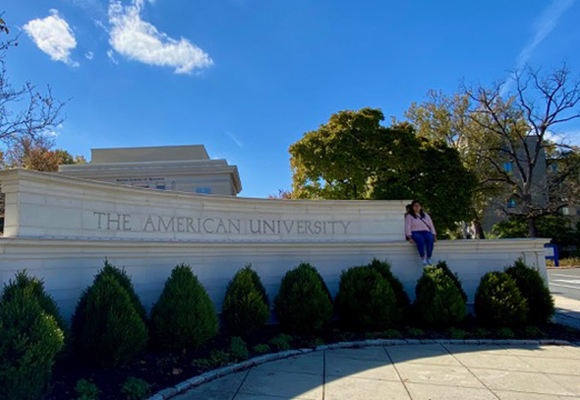
Alexandra ZarembaDori Laub Fellow 2021
Alexandra Zaremba is a Ph.D. Candidate in the Department of History at American University, in Washington D.C. Alexandra holds an MA in Public History from Duquesne University and a BA in History from the University of South Florida. In 2021 she was awarded the American Institute for Southeast European Studies Graduate Fellowship, Central European Historical Society’s Travel and Research Grant, and a University Summer Language Grant for Graduate Students from the German Academic Exchange Service. Alexandra was also selected as an alternate for Fulbright Student Study Research in Serbia. In 2020 she was selected as a fellow with the Auschwitz Jewish Center and in 2019, Alexandra was a Graduate Research Fellow at the United States Holocaust Memorial Museum’s Jack, Joseph and Morton Mandel Center for Advanced Holocaust Studies. Her published work is featured in Europeanisation and Memory Politics in the Former Yugoslavia, edited by Ana Milošević and Tamara Pavasović Trost and Public in Public History, edited by Joanna Wojdon and Dorota Wisniewska. Studying museums and everyday cultural discourses, Alexandra’s dissertation examines Yugoslav identity as a lived experience and shared construction that the public performed and revised on a daily basis in the decades after World War II and the Holocaust. She also uses oral and digital history methodologies to considers how the diverse peoples in Yugoslavia navigated and experienced daily life in the post-war socialist state.
Read Alexandra’s report "Holocaust Survivors in Yugoslavia: A Window into the Multinational Socialist Federation"

Jan BurzlaffDori Laub Fellow 2021
Jan Burzlaff is the William A. Ackman Fellow for Holocaust Studies at Harvard University. A graduate from the École Normale Supérieure, Paris, and the 2016–17 Jane Eliza Procter Fellow at Princeton University, Burzlaff’s recent publications include “Icons, Trodden Sand, and the Violence of the Gaze: Looking at the Holocaust,” Yad Vashem Studies 48, no. 2 (2021); “When the Fires Were Lit: Anti-Jewish Violence in Eastern Europe, 1917–45,” Journal of Contemporary History 55, no. 4 (2020): 893–903; and “Confronting the Communal Grave: A Reassessment of Social Relations During the Holocaust in Eastern Europe,” The Historical Journal 63, no. 4 (2020): 1054–1077. His dissertation is a transnational history of Jewish survival during the Holocaust, featuring prominently the Fortunoff Video Archive, with additional interests in visual and spatial histories, comparative genocide, and violence both in the modern era and on a global scale.
Read Jan’s report "The Holocaust Personality"
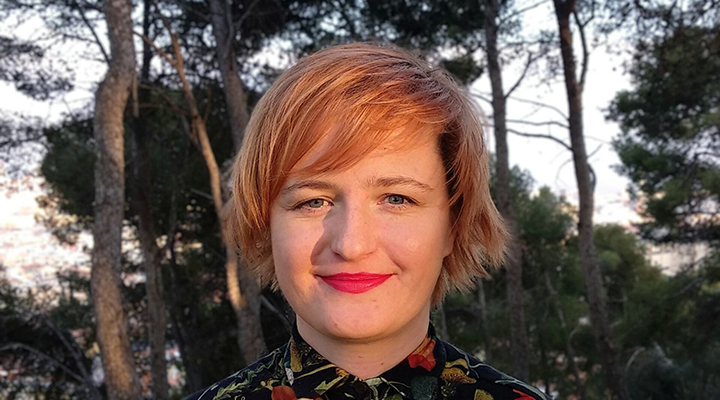
Aleksandra SzczepanFortunoff/VWI Fellow 2021-2022
Aleksandra Szczepan is a co-founder and member of the Research Centre for Memory Cultures at the Jagiellonian University in Kraków and a collaborator of the United States Holocaust Memorial Museum carrying out oral history projects in Poland and Spain. She authored the book Realista Robbe-Grillet (2015) on 20th-century redefinitions of realism. She has been recipient of scholarships from the USHMM, EHRI, the Polish National Science Centre and the Polish Ministry of Culture and National Heritage. Her research interests include Holocaust memory, oral history and space-based testimonial practices of witnesses to the Shoah.
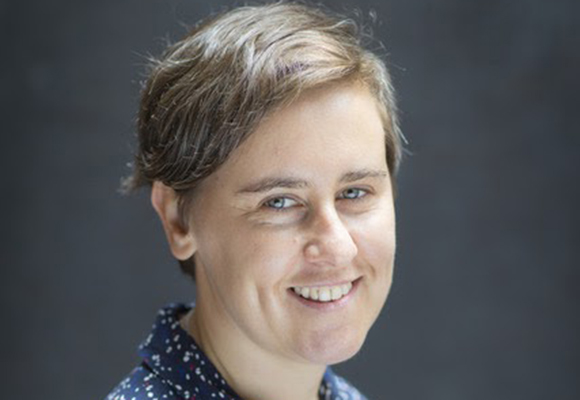
Alicja Podbielska Hartman Fellow
Alicja Podbielska received her PhD in 2021 from the Strassler Center for Holocaust and Genocide Studies at Clark University. In her doctoral dissertation, A Tree for Poland: Memory of Holocaust Rescue, 1942-2018 she examined when, how, and why Polish Holocaust rescuers were officially designated national heroes. She holds an MA in literary studies from Adam Mickiewicz University in Poznań, Poland. She received grants and fellowships from European Holocaust Research Infrastructure, Vienna Wiesenthal Institute, Yad Vashem, Claims Conference, United States Holocaust Memorial Museum, Institute for Contemporary History in Munich, and Museum of Jewish Heritage in New York. Her research interests include Polish-Jewish relations, collective memory, public history, and Holocaust literature.
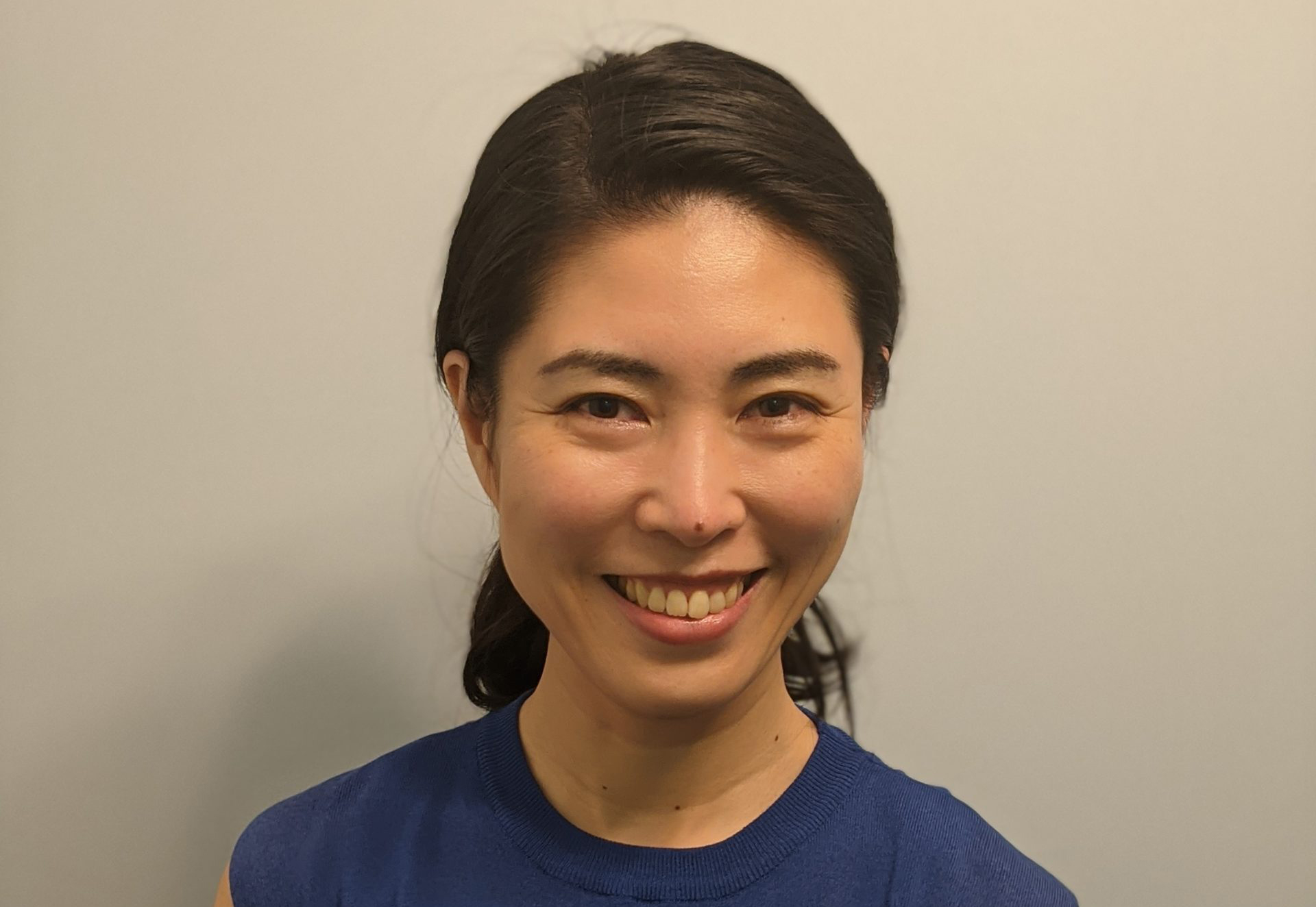
Ariko KatoVisiting Fellow
Ariko Kato is an Associate Professor at Nagoya University of Foreign Studies in Japan. She received her Ph.D. and MA in interdisciplinary Cultural Studies from The University of Tokyo for her dissertations on the prose and art works of Bruno Schulz. She received her BA from The University of Tokyo for her dissertation on Claude Lanzmann’s film SHOAH. From April to September 2020 she conducted research for her project, “Constructing Memories through Photographs: Comparing Nazi Germany Images of Jewish Ghettos and U.S. Army Images of Hiroshima-Nagasaki” as the Robert A. Savitt Fellow at the U.S. Holocaust Memorial Museum’s Mandel Center. In 2016-17 she was a visiting fellow at the Institute of Literary Research of the Polish Academy of Sciences on a grant from the Japan Society for the Promotion of Science. She currently serves on the editorial committee of Schulz / Forum, a journal specializing in scholarly articles on Bruno Schulz, published in Poland.
Her research concerns include avant-garde literature and art in the Lviv area in the interwar period, and the revisionist movement and changing “reality” in memories of the Second World War. Currently, she is conducting research on the color photographs of ghettos created in Nazi-occupied Poland and sensory memories of the Holocaust. Drawing upon the resources of the Fortunoff Video Archive, she will examine representation of sensory experiences in literature and testimonies.
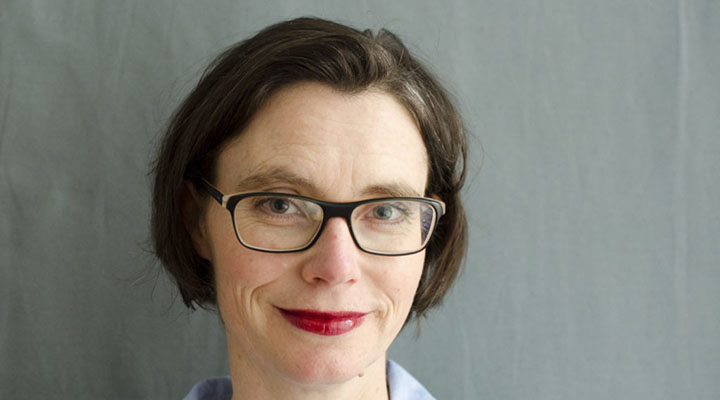
Julie DawsonFortunoff/VWI Fellow 2020-2021
Julie Dawson is a doctoral candidate at the University of Vienna’s Institute for Contemporary History. She holds a master’s degree in Jewish Studies and certificate in East Central European Studies from Columbia University and B.A. and B.M. from Northwestern University. Dawson worked for the Leo Baeck Institute from 2010-2019, acting as director and primary researcher of their archival survey of Bukovina and Transylvania (jbat.lbi.org) for six years. From 2016-2019 she was the summer researcher-in-residence at the synagogue in Mediaș, Romania for the EU Horizon 2020 project TRACES: Transmitting Contentious Cultural Heritages with the Arts. Her research interests include Bukovina, communist Romania, post-war European Jewish history, women’s history, trauma and memory studies. Julie’s research project is titled “The Legacy of Trauma: Examining the ‘Crisis of Life’ in Jewish Survivor Diaries of Early Post-War Romania.”
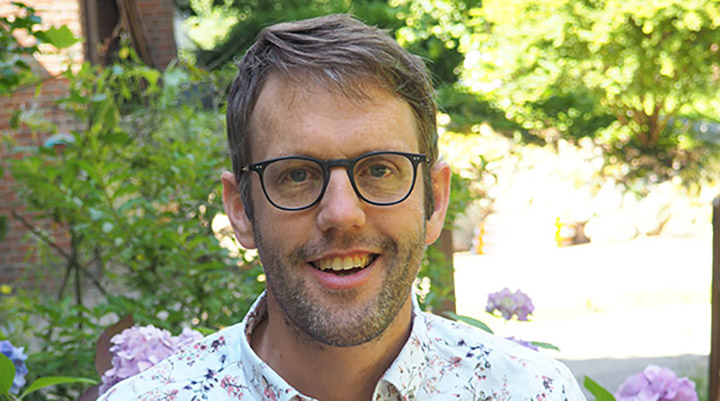
Henry HollandTranslation Fellow
Henry Holland has worked as a scholarly and literary translator since 2010. In recent years he has focused on historical translation, including work on the translation team and editorial board of the Complete Works of Rosa Luxemburg (Verso Books) from 2014. He has also been commissioned for contemporary political science translations by the Rosa Luxemburg Foundation, and other institutions around the globe. Henry also engages with translation of literature and poetry. He has undertaken poetry translations for the Barenboim-Said Academy, Berlin (co-translations from Arabic to English), the Goethe Institute, and Literature Ireland, among other organizations.Henry has a BA in History and English from the University of Birmingham, and lives with his family in Hamburg, Germany.
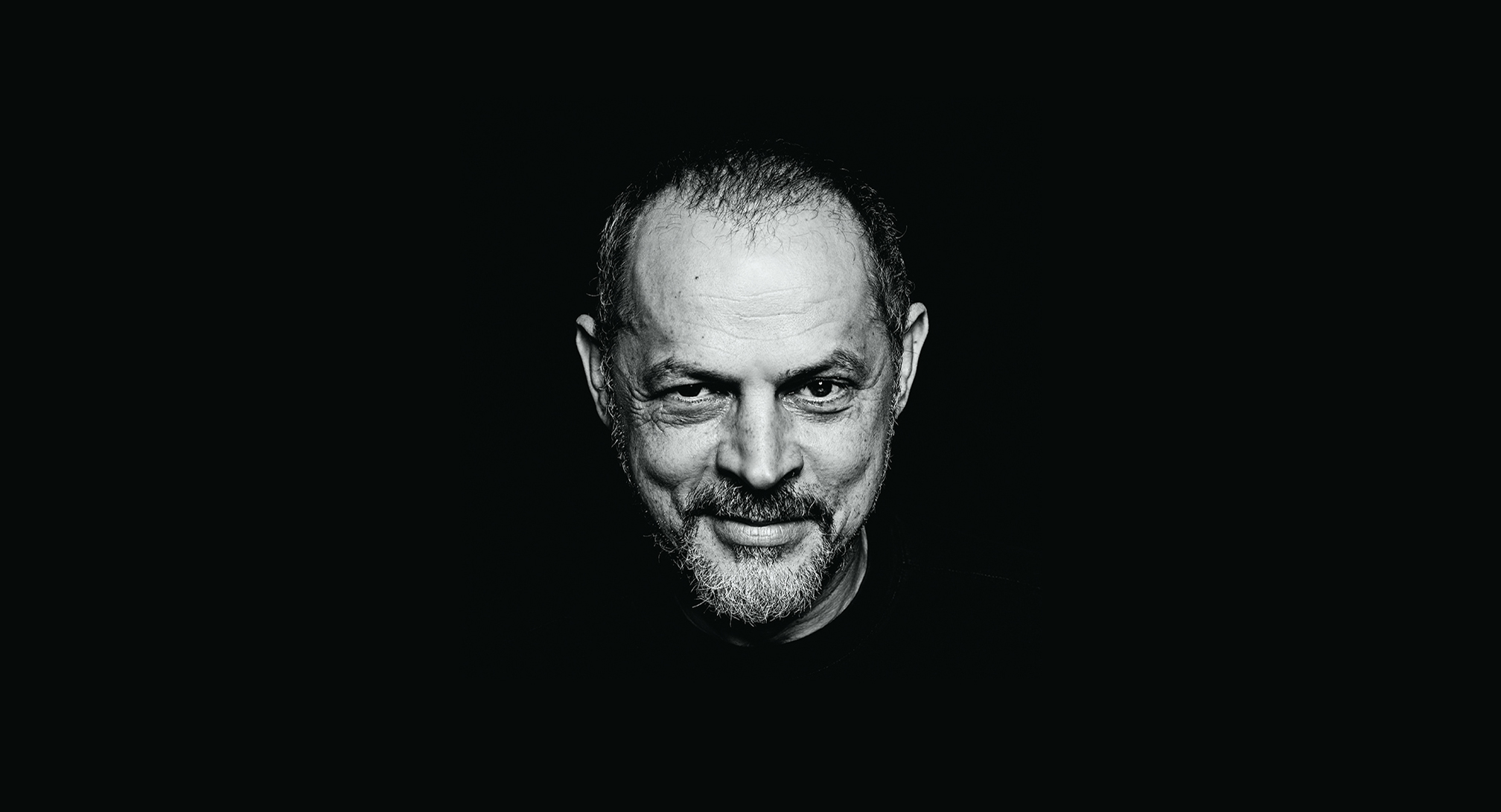
Rafal WnukWilliam Rosenberg Senior Scholar 2021
Rafal Wnuk is Professor at the Catholic University of Lublin. He is a Polish historian specializing in the history of the anti-German and anti-Soviet resistance in the Central Europe during and after WWII, the history of totalitarian systems, museology and politics of memory. He is the author of several books, including: Za pierwszego Sowieta. Polska konspiracja na Kresach Wschodnich II Rzeczypospolitej (wrzesień 1939-czerwiec 1941) (Under the first Soviet: Polish underground in the Second Republic’s Eastern territories (September 1939-June 1941)) from 2007; Wojna po wojnie. Antysowieckie podziemie w Europie Środkowo-Wschodniej w latach 1944-1953 (A War after the War. The anti-Soviet Underground in East Central Europe in 1944-53) from 2012, with co-authors: Grzegorz Motyka, Tomasz Stryjek, Adam F. Baran; Leśni Bracia. His lateste work is Podziemie antykomunistyczne na Litwie. Łotwie i w Estonii. 1944-1956 (Forest Brothers. Anti-Communist underground in Lithuania, Latvia and Estonia 1944-1956) from 2018. Rafał Wnuk was the editor-in-chief of Atlas polskiego podziemia niepodległościowego 1944-1956 (Atlas of the Polish pro-independence underground, 1944-1956) and editor-in-chief of the semi-annual publication of the Institute of National Remembrance, Pamięć i Sprawiedliwość. (Remembrance and Justice) from 2002 to 2009. He is the author of numerous scientific articles, educational programs, and a curator of historical exhibitions.
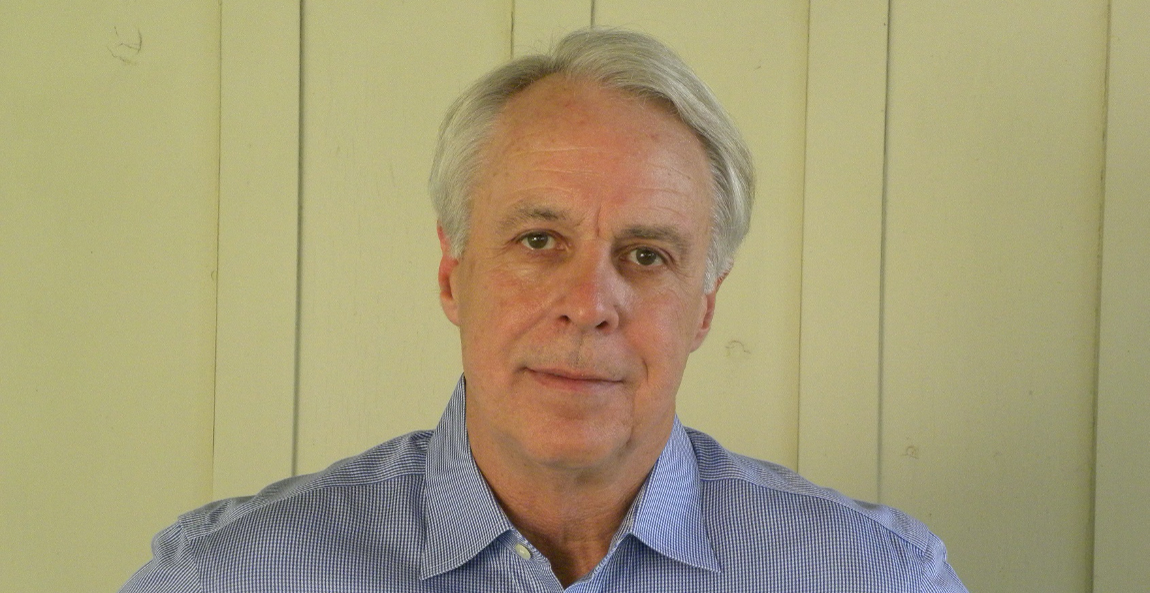
Jonathan PetropoulosWilliam Rosenberg Senior Scholar 2021
Jonathan Petropoulos is the John V. Croul Professor of European History at Claremont McKenna College in Southern California. Previously, he received his Ph.D. from Harvard University (1990), where he also had an appointment as a Lecturer in History and History & Literature. He began working on the subject of Nazi art looting and restitution in 1983, when he commenced graduate work in history and art history. From 1998 to 2000, Dr. Petropoulos served as Research Director for Art and Cultural Property on the Presidential Commission on Holocaust Assets in the United States, where he helped draft the report "Restitution and Plunder: The U.S. and Holocaust Victims’ Assets (2001)". In this capacity as Research Director, he supervised a staff of researchers who combed archives in the United States and Europe in order to understand better how representatives of the U.S. government (including the Armed Forces) handled the assets of Holocaust victims both during and after the war. As Research Director, he provided expert testimony to the Select Committee on Culture, Media and Sport in the U.K. House of Commons and to the Banking and Finance Committee of the U.S. House of Representatives. He is the author of Art as Politics in the Third Reich (University of North Carolina Press, 1996); The Faustian Bargain: The Art World in Nazi Germany (Oxford University Press, 2000); Royals and the Reich: The Princes von Hessen in Nazi Germany (Oxford University Press, 2006); Artists Under Hitler: Collaboration and Survival in Nazi Germany (Yale University Press, 2014), and has helped edit a number of other volumes. His latest book, titled Göring’s Man in Paris: The Story of a Nazi Art Plunderer and his World, was published in January 2021 by Yale University Press.
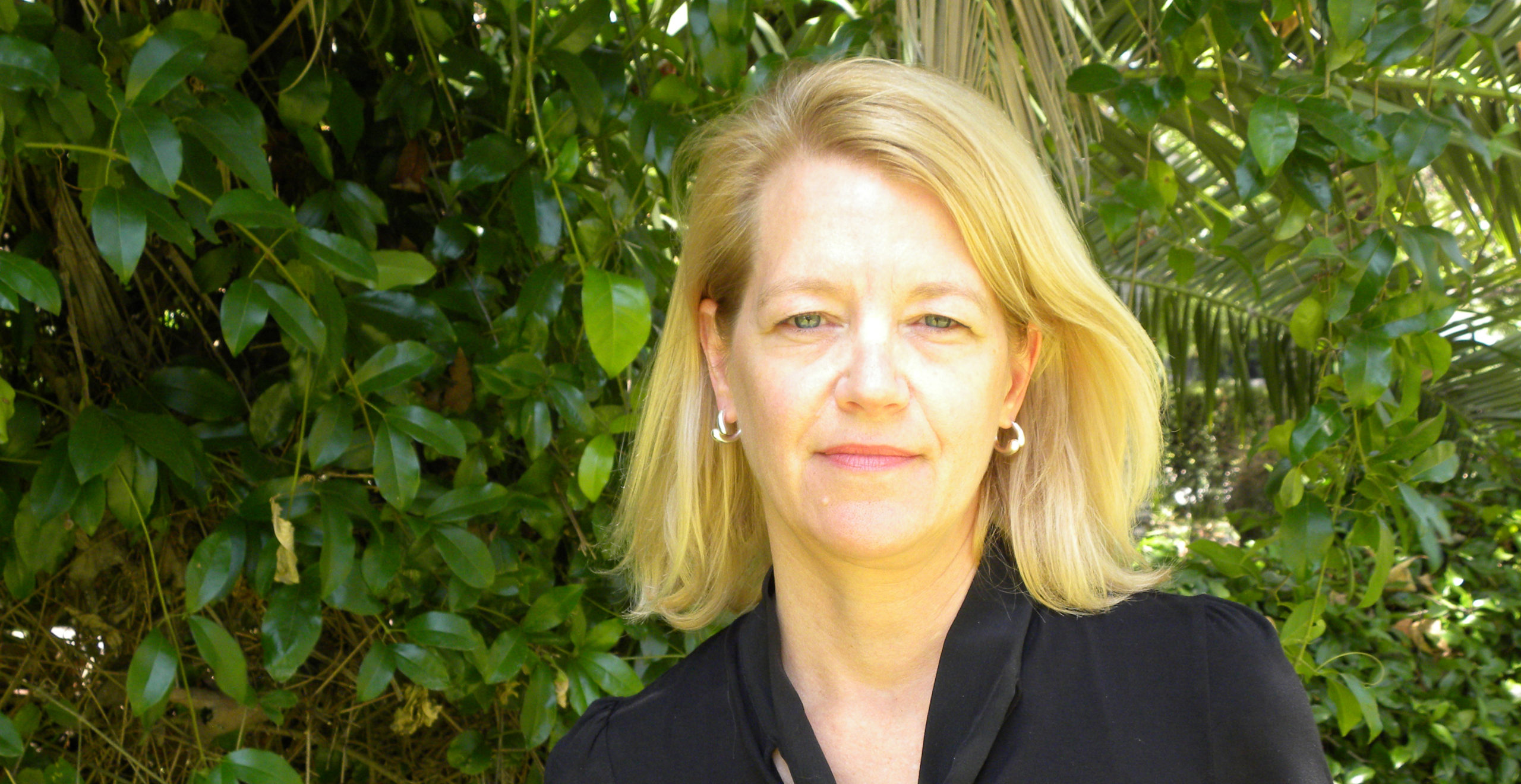
Wendy LowerWilliam Rosenberg Senior Scholar 2021
Wendy Lower is the John K. Roth Professor of History and Director of the Mgrublian Center for Human Rights at Claremont McKenna College. She received her BA in History and German from Hamilton College, and PhD in History from American University in 1999. Lower chairs the Academic Committee of the United States Holocaust Memorial Museum and served as Acting Director of the Jack, Joseph and Morton Mandel Center for Advanced Holocaust Studies of the USHMM (2016-2018). As a German Research Foundation Fellow at the Ludwig Maximilians Universität in Munich (2007- 2012), Lower introduced courses on the Holocaust, collected testimonies of perpetrators and bystanders, and successfully co-led an initiative to establish a federally funded German Center for Holocaust studies at the Institute for Contemporary History. Dr. Lower is the author of Nazi Empire-Building and the Holocaust in Ukraine (2005), The Diary of Samuel Golfard and the Holocaust in Galicia (2011); and co- editor (with Ray Brandon) of Shoah in Ukraine: History, Testimony, Memorialization (2008). Her book, Hitler's Furies: German Women in the Nazi Killing Fields (2013) was a finalist for the National Book Award and has been translated into 23 languages. Her latest book, The Ravine: A Family, A Photograph, A Holocaust Massacre Revealed, was published in February 2021 by Houghton Mifflin Harcourt.
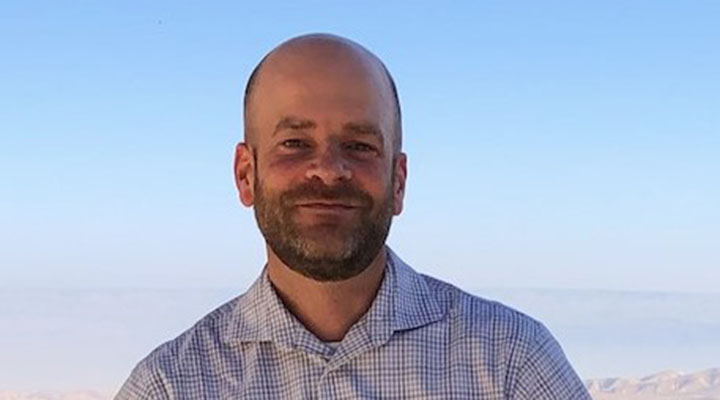
Chad GibbsDori Laub Fellow 2020
Chad is a PhD candidate in the Department of History at the University of Wisconsin–Madison. His dissertation project, "Against that Darkness: Perseverance, Resistance, and Revolt at Treblinka," adds to our understanding of life inside this camp by exploring inmate relationships—or social networks—and how prisoners leveraged these bonds to gain some measure of control over lethally restricted camp geography.
Maintaining emphases on networks and space throughout, Chad’s work further delivers analysis of gender and masculinity in life and resistance at the camp while working to recover the long-overlooked experiences of women at Treblinka.
Read Chad's report, "What They Tell: Treblinka Survivor and Witness Voices in the Fortunoff Archive.
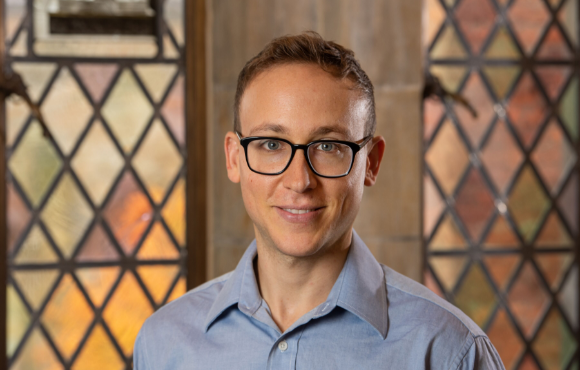
Gil RubinHartman Fellow 2019-2021
Gil Rubin received his PhD from Columbia University in 2017. He was an Israel Institute Postdoctoral Fellow at the Center for Jewish Studies, Harvard University 2017-2019 and Co-Chair of the Jews in Modern Europe Study Group at the Center for European Studies, Harvard. His research concerns the history of Jews in East Central Europe, the Holocaust and the history of Zionism and the State of Israel. He is currently writing a book, The Future of the Jews: Planning for the Postwar Order, a history of planning for the reconstruction of Jewish life in Eastern Europe and Palestine after the Second World War.
Read Gil's Critical Edition on the testimony of Gerhart M. Riegner
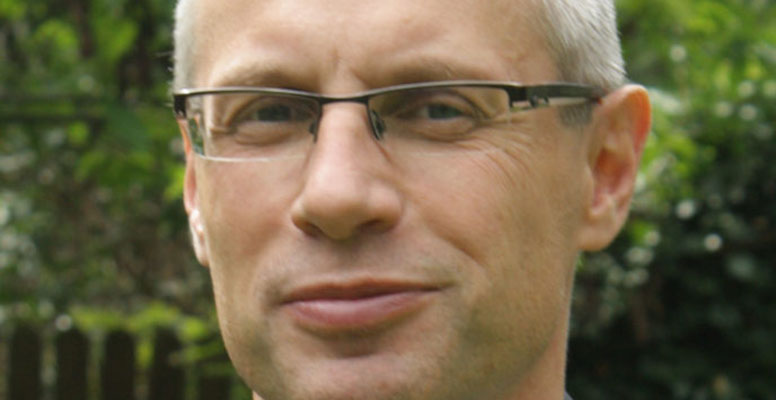
Dr. Pawel MachcewiczWilliam Rosenberg Senior Scholar 2020
Dr. Pawel Machcewicz is professor at the Institute of Political Studies of the Polish Academy of Sciences in Warsaw. He is the founding director of the Museum of the Second World War in Gdańsk (2008-2017). He was removed from his post by the Law and Justice government after opening the museum to the public, due to the government’s claims that the permanent exhibit was too “cosmopolitan” and “not Polish enough.” Pawel has taught at Warsaw University, the Nicolaus Copernicus University in Toruń, and was a co-founder of the Institute of National Remembrance.
Read Pawel's Critical Edition on the testimony of Władysława Zawistowska
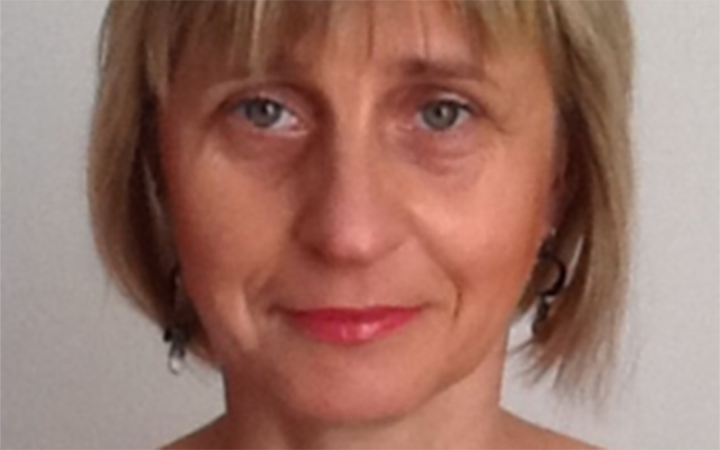
Dr. Anna MachcewiczWilliam Rosenberg Senior Scholar 2020
Dr. Anna Machcewicz is an Assistant Professor at the Institute of Political Studies in the Polish Academy of Sciences in Warsaw. In 2015 Anna received her PhD in Political Science and published her dissertation "Rebellion: Strikes in the Tri-City in August 1980." Her dissertation book was awarded the Jan Długosz Award in 2016. Her second book, Prison letters of Zofia and Kazimierz Moczarski (Warsaw, 2015) also received awards in 2016.
Read Anna's Critical Edition on the testimony of Helena Balicka-Kozłowska
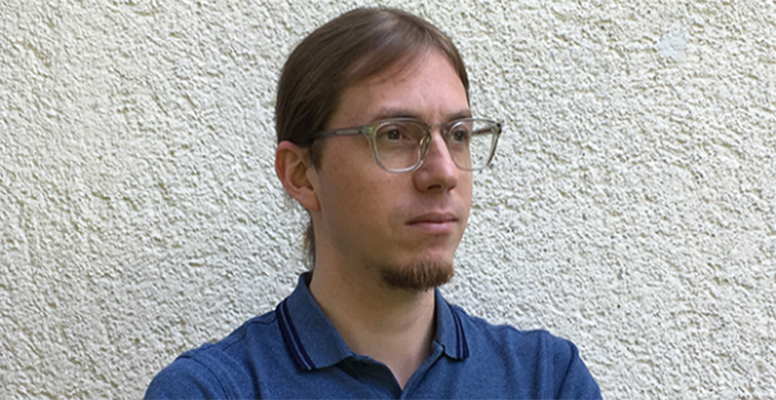
Nikolaus HagenFortunoff/VWI Fellow 2019-2020
Nikolaus Hagen is a historian and lecturer in the Department of Contemporary History at the University of Innsbruck and at the University College for Teacher Education Vorarlberg. He is also a 2019 EHRI Fellow at the Arolsen Archives. He was previously a research fellow and assistant curator at the Jewish Museum Munich. Nikolaus’ research project is titled “The Nazi Persecution of ‘Mixed Marriages’: A Comparative Study on Gendered Experiences of Persecution.”
Read Nikolaus's Critical Edition on the testimony of Martha Saraffian
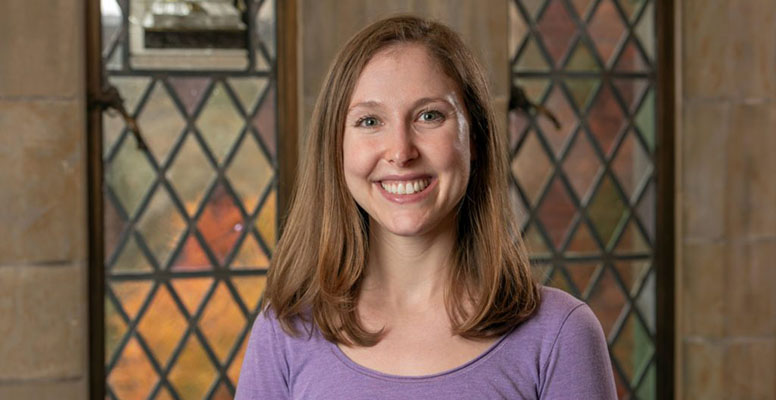
Allison SomogyiFortunoff/USC Research Fellow
Allison received her PhD from the University of North Carolina at Chapel Hill. Her dissertation analyzed the survival and resistance tactics employed by young Jewish women in Budapest under Arrow Cross rule and German occupation, and traced, through their diaries, how they navigated the fraught space available to them in the chaotic months of the occupation and during the siege of Budapest. Her work as a Yale-USC Postdoctoral Research Fellow builds off her dissertation research by exploring the differences in the ways Hungarian-Jewish women discussed sexual violence at the time of the Final Solution and throughout its aftermath. She will also focus on the ways which survivor testimonies that touch upon sexual violence might vary in response to different interviewing processes and methodologies of the Fortunoff Video Archive and the USC Shoah Foundation Visual History Archive.
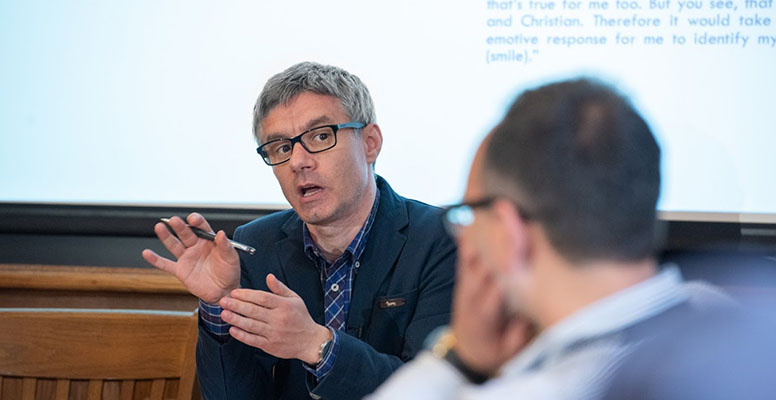
Ion PopaFortunoff/VWI Fellow 2018-2019
Ion Popa is a Saul Kagan Claims Conference Postdoctoral Fellow in Advanced Shoah Studies (New York) and Honorary Research Fellow of the Centre for Jewish Studies, University of Manchester. His research focus lies in the field of Jewish-Christian Relations in Eastern Europe during the Holocaust. His numerous publications include the monograph The Romanian Orthodox Church and the Holocaust and the article "The 7th Rosiori Regiment and the Holocaust in Romania and the Soviet Union," the latter published in Dapim: Studies on the Holocaust in 2018.
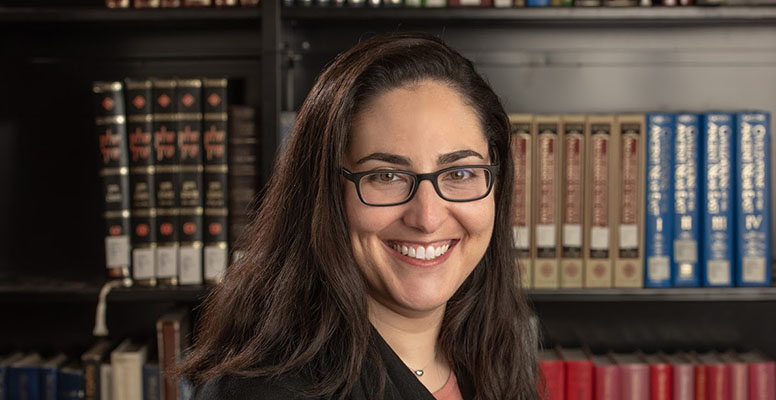
Sari J. SiegelHartman Fellow 2018-2019
Sari has an MA and PhD in history from the University of Southern California. The Geoffrey H. Hartman Postdoctoral Fellowship brings her back to Yale University, where she earned her BA in history in 2006. In addition to receiving numerous grants and fellowships, she has been a fellow-in-residence at the Center for Holocaust Studies at the Institute for Contemporary History, the Vienna Wiesenthal Institute, and the US Holocaust Memorial Museum’s Jack, Joseph and Morton Mandel Center for Advanced Holocaust Studies. She has presented her research on Jewish prisoner-physicians at many conferences and workshops in the US and abroad.
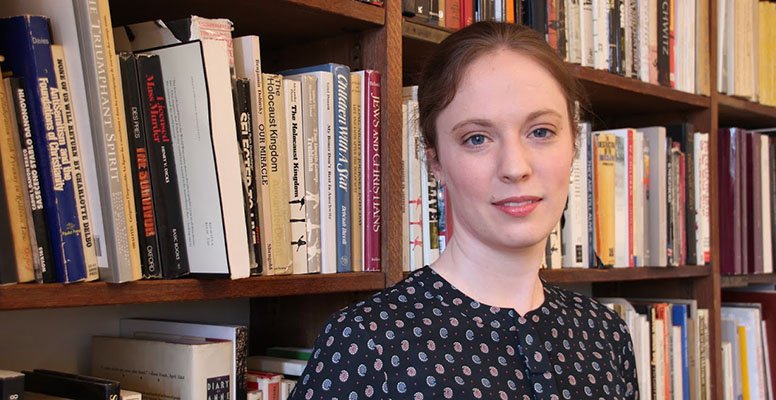
Sarah GaribovaHartman Fellow 2017-2018
Sarah received her PhD from the University of Michigan in June 2017. Her dissertation uses mourning and burial practices to examine the engagement of Soviet Jews with Jewish religious traditions, Soviet norms, and Russian cultural influences. Sarah gathered data related to her dissertation topic, as well as began a new project to trace the fates of Soviet Jewish orphans after WWII. As the inaugural Hartman fellow, Sarah helped the Archive launch a testimony critical edition series, and participated in outreach and instruction efforts.
Read Sarah's Critical Edition on the testimony of Liubov’ Naumovna Krasilovskaia
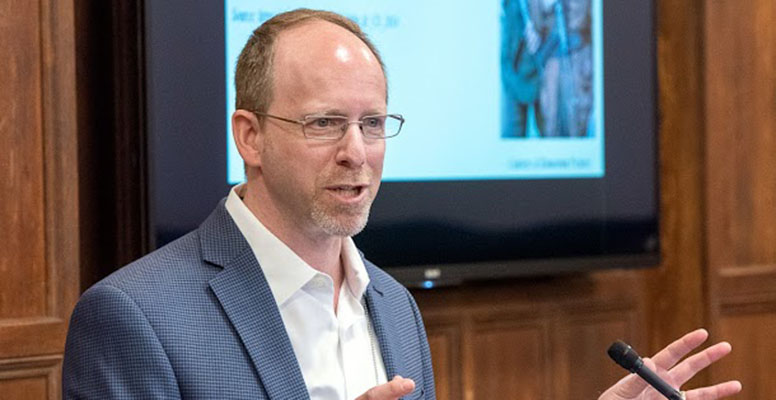
Glenn DynnerRosenberg Senior Research Scholar Fall 2017
Glenn is a Professor of Religion at Sarah Lawrence College, and a scholar of East European Jewry. His focus is on the social history of Hasidism and Polish-Jewish relations. His most recent work is Yankel’s Tavern: Jews, Liquor and Life in the Kingdom of Poland. Glenn pursued a research project using testimonies of survivors that identified with Hasidic or non-Hasidic Orthodoxy. He also helped establish the Fortunoff Archive’s new critical edition series.
Read Glenn's Critical Edition on the testimony of Rubin Pinsker
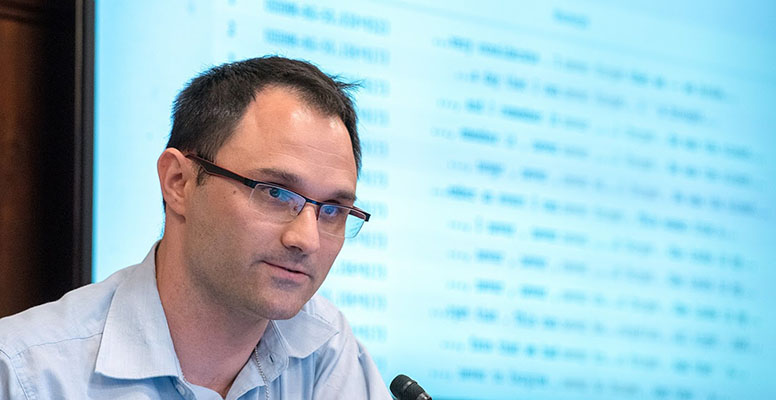
Gabor Mihaly TothFVAHT/DHLab Associate 2017-2018
Gabor graduated from the University of Oxford with a PhD in history. Gabor is the Gerda Henkel Fellow of the German Historical Institute in Washington, DC. His main field of research is computer assisted analysis of historical texts. At Yale, in addition to writing a monograph on the experience of persecution, he will build a digital tool to explore transcripts of survivor testimonies.
